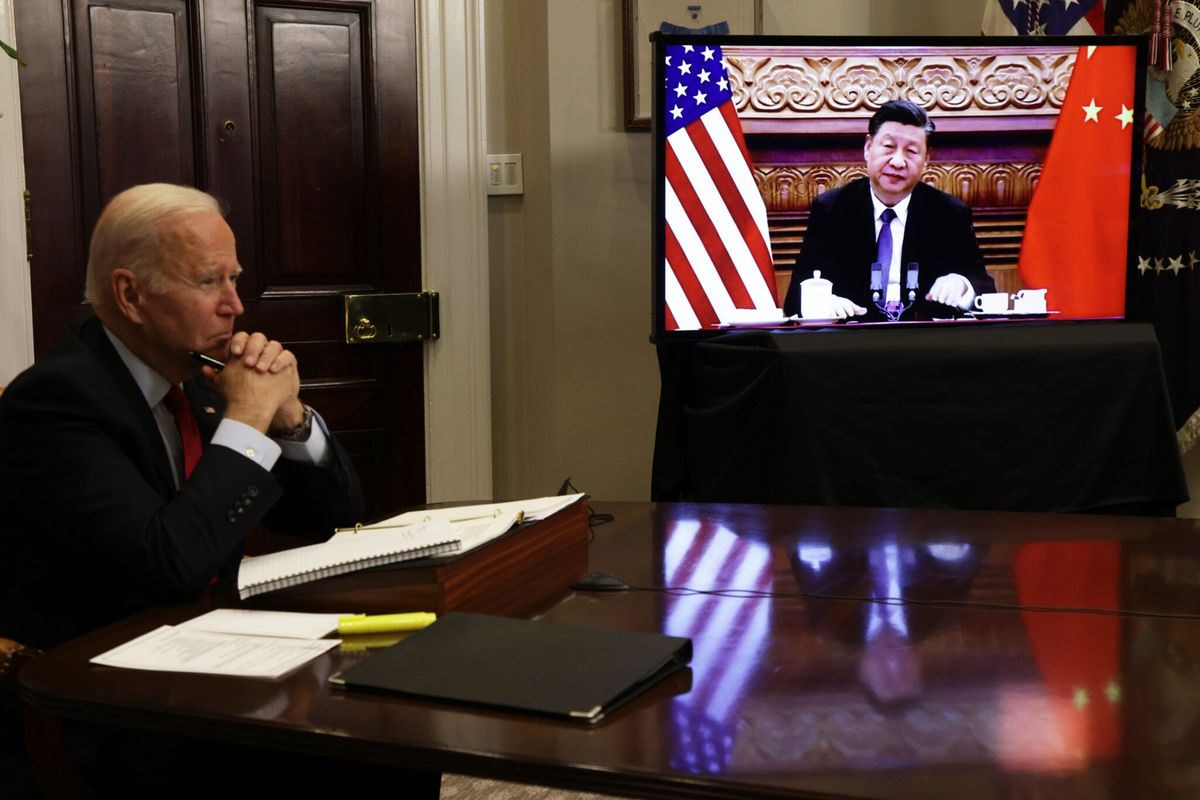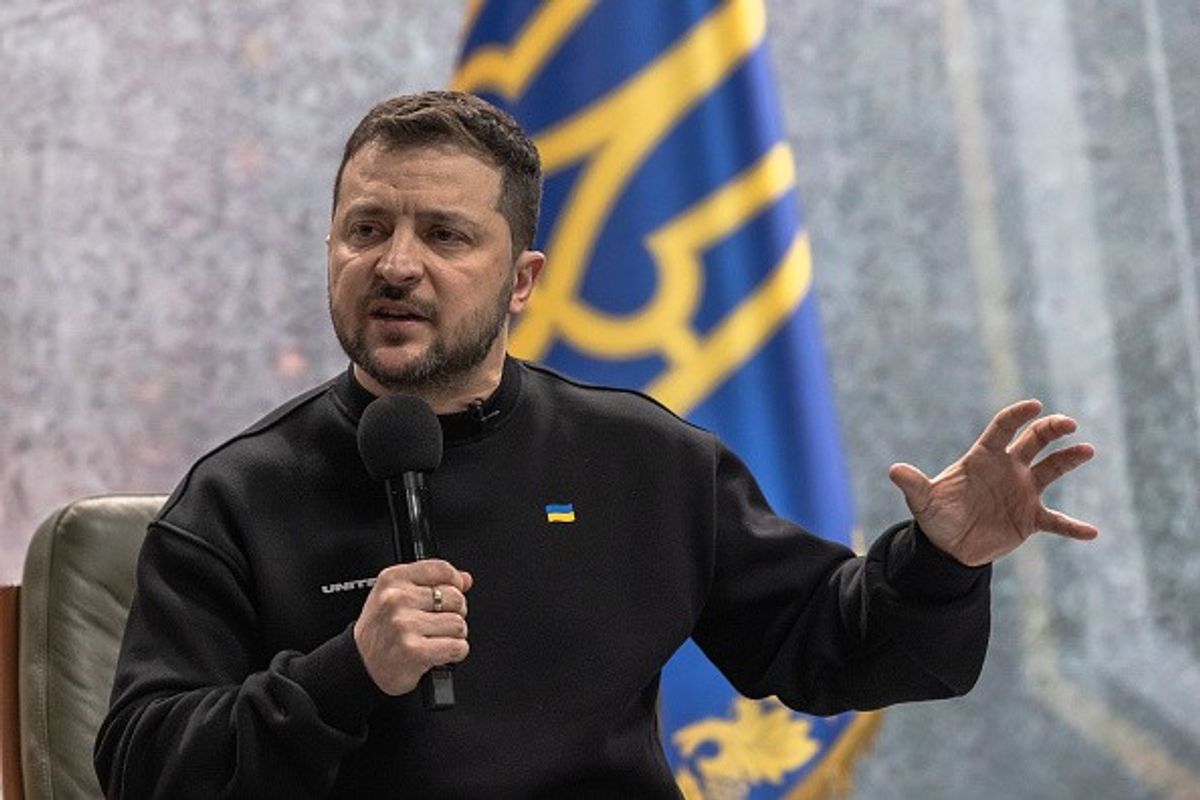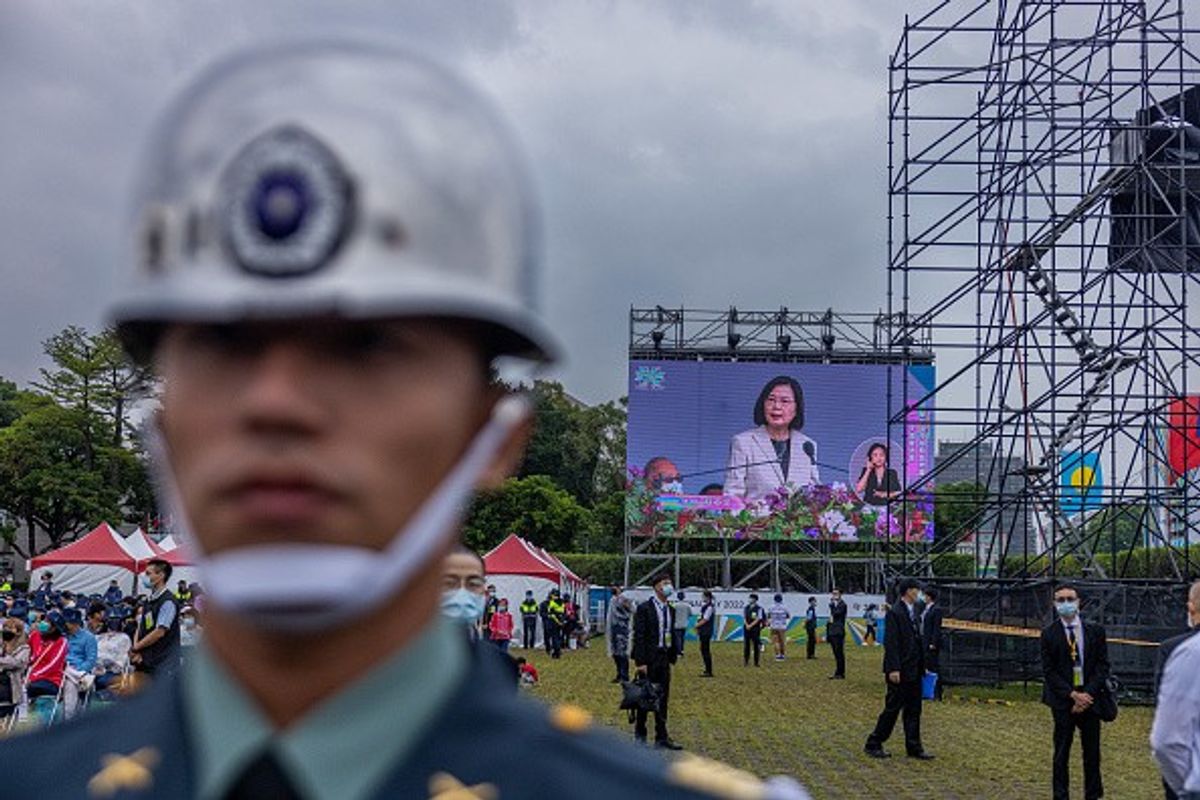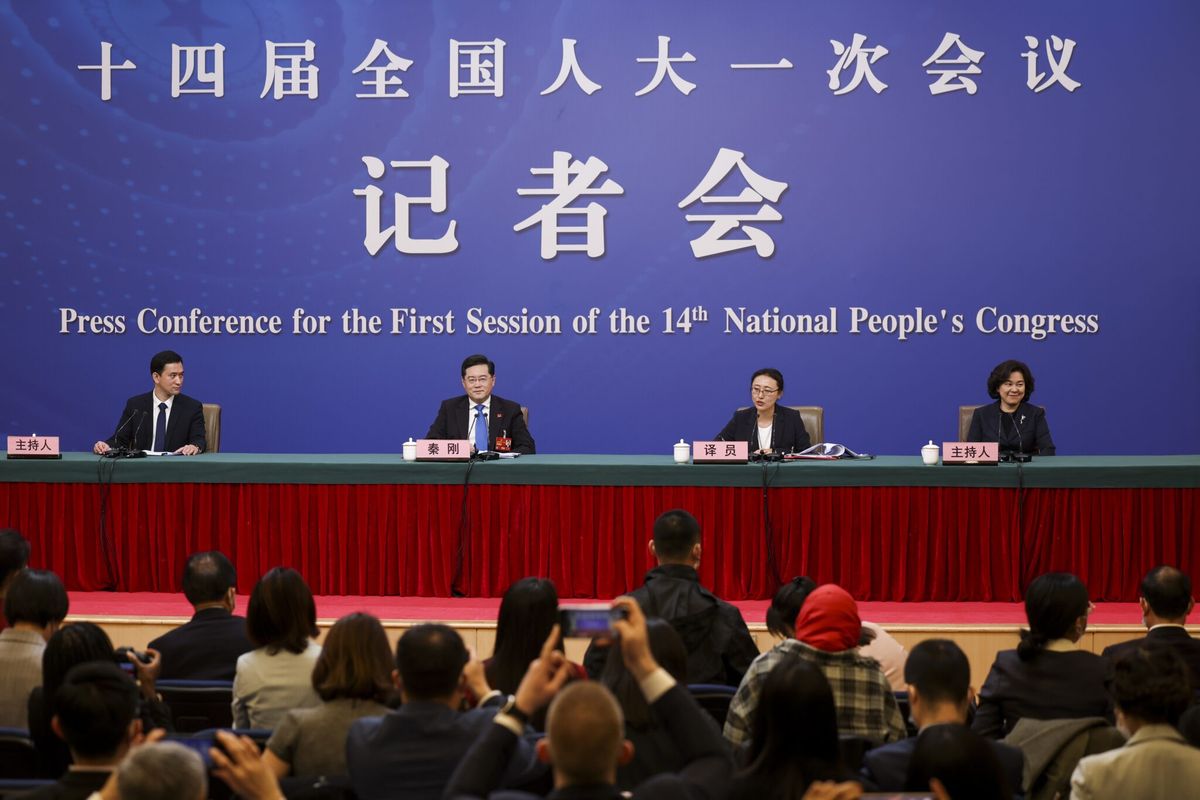EXPERT PERSPECTIVE — European Energy pressures exacerbated by Russia’s invasion of Ukraine, have forced a reset in energy production and supply. "I don’t believe there was ever a time – to include in the 1970s – when so many consumer nations worked so furiously to identify new producers," said Cipher Brief Expert and Energy Expert Norm Roule in A New Age of Energy Crisis and Diplomacy. "And they should. Global oil and gas demand is likely to grow in 2023, and there are real worries about another price spike."
Fatih Birol, the executive director of the International Energy Agency (IEA), said recently, that he believes circumstances have brought the world to 'the first truly global energy crisis.' Birol said rising LNG imports to Europe and a potential surge in Chinese energy demands will tighten world markets in 2023 with limited amounts of new LNG capacity coming onto the market.
At the moment, the energy crisis is tempered by full gas storage capacity in much of Europe, as well as mild weather. And, as The New York Times has reported, there are signs of a startling transformation in the way Europe manages energy supplies. EU states are cooperating to an unprecedented degree to acquire, exchange, and bring additional energy resources online, coupled with substantial conservation efforts.
Still, wildcards abound in an energy environment marked by uncertain supplies, fluctuating demand, and unstable geopolitical conditions but there could be silver linings as the IEA signals a turning point toward a cleaner and more secure future.
BACKGROUND
Weather was the early – and pivotal – wildcard in energy sector projections of just how deep and broad a supply crisis Europe would face as the winter of 2022-2023 approached.
Rising costs of gas and electricity have placed increasing stress on European households and industry alike, and have tested EU and individual nations’ policies and their ability to cope in ever-shifting conditions.
Backward-glancing analyses of how Europe’s energy predicament came to pass focused on Europe’s dependence on Russia, leading to what has been described as “the greatest geopolitical blunder of the European Union in the 21st century.”
As difficult as the coming winter is expected to be, multiple observers have been pointing ahead to the cold weather season of 2023-2024 as the real crucible, when energy markets and supplies are in even greater doubt.
- Europe, nevertheless, must deal with the situation at hand, and remedies and workarounds have included EU-wide steps, such as placing price gaps on Russian gas, while simultaneously tamping down domestic demand from consumers and industry.
THE EXPERTS
The Cipher Brief asked veteran analysts of energy market dynamics for their insights on this critical, and volatile, arena for global economics, security, and prosperity.
Mark Finley, Fellow in Energy and Global Oil, Rice University's Baker Institute
Mark Finley served as the senior U.S. economist at BP. For 12 years, he led the production of the BP Statistical Review of World Energy, the world’s longest-running compilation of objective global energy data. He also was responsible for the company’s long- and short-term oil market analysis, and he led the global oil market and transportation sector analyses for the long-term BP Energy Outlook. Prior to joining BP, Finley was an analyst and manager at the CIA.
Anna Mikulska, Non-resident Fellow in Energy Studies, Center for Energy Studies, Rice University’s Baker Institute
Dr. Anna Mikulska's research focuses on the geopolitics of natural gas within the EU, former Soviet Bloc and Russia. Mikulska is a senior fellow at University of Pennsylvania’s Kleinman Center for Energy Policy, where she teaches graduate-level seminars on energy policy and geopolitics of energy. She is also a fellow at the Foreign Policy Research Institute and sits on the editorial board of the Adam Mickiewicz University Law Review..
Ariel Cohen, Director, Energy Growth and Security Program, International Tax and Investment Center
Dr. Ariel Cohen is also Senior Fellow at Atlantic Accounts. He is a recognized authority on international security and energy policy, and leading expert in Russia, Eurasia, and the Middle East. Dr. Cohen is the Founding Principal of International Market Analysis Ltd.
Ben McWilliams, Consultant, Bruegel economic think tank
Ben McWilliams' work involves data-driven analysis to critique and inform European public policy, specifically in the area of the energy sector and its de-carbonization. Recent work has focused on the implications of the ongoing energy crisis and policy options for responding.
Finley: You could argue that we’re already in a global energy crisis. Before the crisis, Russia was the world’s leading fossil fuel exporter (#1 in natural gas, #2 for both crude oil and refined products, and a large coal exporter as well) as well as a large exporter of other commodities like grains, metals & minerals. That already makes it different from the oil shocks of the 1970s—because this time we’re seeing disruptions for all forms of fossil energy.
In time, the global system would adjust to higher prices and the geopolitical risks that come from dependence on Russia. But investment—in new oil/gas production, energy-efficient equipment, and/or alternative energy sources—all takes time. There’s simply no getting around the fact that fossil energy is essential to today’s economy. Oil and gas account for more than half of all the world’s energy consumption (according to the BP Statistical Review) and if we add coal, fossil fuels account for more than 80 percent. So while we may become less dependent on fossil energy if we successfully transition to a net-zero world, for now, this stuff matters a lot.
Mikulska: It really is not looking good. European countries are cutting demand and that impacts their economies. But not only that — the crisis in energy, particularly in natural gas, will also have an impact on food supply. For example, the fertilizer industry has been affected, which has a huge impact on the ability of different countries to support themselves, especially countries in the Global South that do not have money to subsidize agriculture or subsidize the purchase of food. That, on top of the grain crisis resulting from the Ukraine conflict, which has been made even worse now that Russia has exited the agreement to send grain out of Ukraine. So this is absolutely something that will impact everybody, around the globe.
China is interesting because China actually can, as a huge market demand center, impact other demand centers. So the fact that China has been sending some of the LNG it bought to Europe actually allowed a little bit of breathing room for the Europeans over the summer and this fall. But if Chinese domestic demand picks up then they might not be as willing to send cargoes to Europe. They will be retaining it on their own shores, and that means less LNG on spot markets. We have to remember that there's actually very little U.S. LNG that actually is committed for European delivery; most of those deliveries come from China and other places. So if China decides to restrain exports, that will tighten the market for Europe and create even higher prices potentially.
Get your 10-minute national security daily brief with Suzanne Kelly and Brad Christian by signing up for The Cipher Brief’s Open Source Report Daily Newsletter or by listening to The Cipher Brief’s Open Source Report Podcast wherever you listen to podcasts.
Cohen: The main beneficiary of the mild winter in Europe is Germany. Germany of course, is the engine of the European economy, and it got 40 plus percent of its gas from Russia. And it was planning to expand its dependency on Russian gas by activating all but built Nord Stream 2 gas pipelines. Of course, with the war, there were sanctions, the pipelines did not become operational. And then there was some kind of an explosion that blew up two out of three Nord Stream 2 pipelines.
In terms of who wins and who loses interestingly enough, the Iberian Peninsula, Spain and Portugal have large capacity for LNG terminals. And I noticed that national gas prices in the Iberian Peninsula at some point can be three times lower than in Northern or Eastern Europe.
France is a problem because Macron resists building a pipeline from Spain and Portugal across the Iberian Peninsula . The pipeline that would bring gas that would be brought through LNG terminals on the Atlantic coast of the Iberian Peninsula to the rest of Europe. Macron is doing it because France wants to sell its nuclear generated electric energy to Europe and it is blocking gas, which of course the Germans and the rest are extremely pissed off.
The Italians are going out of their way to scramble and get more gas from across the Mediterranean, as they always do, from Algeria in particular. There are plans to build pipelines from further south in Africa from Nigeria but these are desperate measures for desperate times. Azerbaijan is increasing putting more gas into the Trans-Anatolian pipeline and Trans Adriatic pipeline. I predicted a long time ago when they first built their system that they will be putting compressor stations and increasing their supply from the current 16 to 26 billion cubic meters (BCM) a year.
But this is still a drop in a bucket because the Europeans need to replace over 150, maybe as much as 160 billion cubic meters a year. So it's a challenge. The Norwegians are great beneficiaries of high gas prices. So instead of having $1.5 trillion in their sovereign wealth fund, they're going to $2 trillion. So there are winners and losers clearly.
The bottom line, Europe and Germany in particular, dug that hole for 30 years. They were warned again and again not to be too dependent on Russia. Myself and many of my colleagues made a point up to 2006, 2009 when Russia started using gas as a weapon that Europe may be a victim, and of course the German government.
McWilliams: European Union leaders must strike a grand energy bargain based on four broad principles: (i) all countries bringing forward every available supply-side flexibility (which in the short-run must include gas output in the EU – this does not contradict climate goals but instead substitutes the EU’s dash for gas on international markets), (ii) all countries making comprehensive efforts to reduce demand, (iii) a political committing to maintain energy markets and cross-border flows, (iv) compensation for the most vulnerable consumers.
The past months have seen very high coal, gas, and oil prices globally, and some might argue we are already living through a global energy crisis. The big variable is oil markets and what happens over the next few months with i) EU’s ban on Russian imported crude oil and products, and ii) the G7 Russian oil price cap. OPEC+ has already committed to cutting production (and cannot easily reverse this position without Russia’s blessing). Hence, if the price cap / embargoes do not go smoothly, there is a real risk of oil prices spiking very high which would exasperate the current energy crisis significantly – and I think it would then leave little semantic doubt that the world enters a global energy crisis.
Cipher Brief Senior Editor Ken Hughes contributed to this report
Read more expert-driven national security insights, perspectives and analysis in The Cipher Brief


















